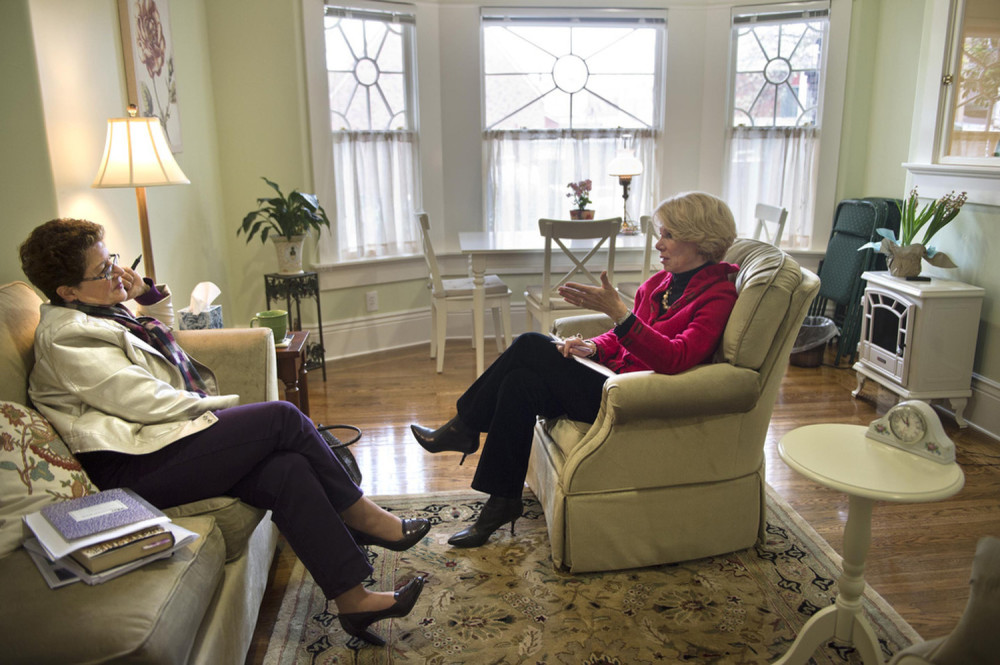By Judi Light Hopson, Emma H. Hopson and Ted Hagen
McClatchy-Tribune News Service.
Are you still grieving a painful divorce that happened years ago? Or, do you feel deeply hurt by a boss or co-worker who stabbed you in the back last year?
Whether your pain is recent or not, your emotional entanglement can rob you of life’s joy. Yet letting go and moving on can be tough to do.
“I divorced my abusive husband over 40 years ago,” a woman in her 70s told us recently. “I hate him with a deep, crazy passion that still eats me alive.”
This woman has tried therapy, spiritual approaches, and hypnotism to heal her pain. Nothing has worked. Why? We believe she is still trying to “fix” the relationship.
We advised her to try this: Consciously try to develop “neutral” feelings toward someone who has harmed you.
Feeling hate or hurt still means you’re emotionally glued to him or her.
Feeling neutral means you’re not interested in judging, hating, fixing or fantasizing about this person. What helps is to dismiss this person’s image and not really care one way or the other.
These tips can help:
Acknowledge the true situation. You don’t have to delude yourself into thinking the person didn’t hurt you or your pain wasn’t justified. This would dishonor you if you pretended it wasn’t awful.
Realize the shortcomings of the person who hurt you. Maybe you don’t know all of the details, but you can guess that childhood pain, lacking morals or failure to mature properly caused him or her to act ugly. Stop trying to fix it.
Give up trying to solve any mysteries. You can only go so far into delving into the psyche of another person. At some point, you have to stop trying to figure it all out. Forgive the person for your own sake and resolve to let the pain go.
“I learned to talk to myself to feel more neutral toward my mother,” says a man who suffered terrible abuse in his teens. We’ll call him Michael. His mother had become an alcoholic, but no one could figure out why.
“It’s very hurtful to feel disgusted toward a parent,” Michael told us. “Feeling more neutral toward my mother means I don’t react to her memory. I can think of her in a relaxed way, send good thoughts her way, and stop wishing it all could have been different.”
Michael figured out his mother might not know why it all happened. He learned in an Al-Anon meeting that alcoholism can occur for many reasons, everything from stress to personal body chemistry to hiding personal pain.
“I can feel badly toward alcoholism as a disease, but still not hate my mother,” Michael told us. “I try to take a neutral stance and realize she was a victim, too. I used to say, ‘She should have had more willpower. She should have gotten help.’ But, I’ve learned to stop doing that. That pulls me into the middle of the storm.”
Michael’s mother eventually quit drinking, so he now strives to say, “Thank goodness. Yes, my teen years were stressful, but I turned out fine. I can feel a lot of empathy for hurting people, and I won’t let the experience cripple me. I choose to heal and look for the good in every single day of my life.”
What we tell ourselves is the most powerful influence on our lives. By choosing to feel more neutral toward bad things we can’t change, we create more space to be happy.
___
(Judi Light Hopson is the Executive Director of the stress management website USA Wellness Cafe at www.usawellnesscafe.com . Emma Hopson is an author and a nurse educator. Ted Hagen is a family psychologist.)














































































































































































































































































































































































